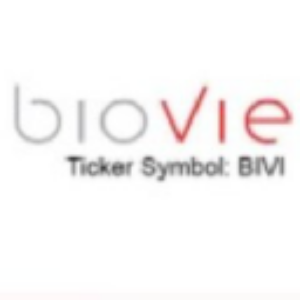BioVie's Lead Drug Candidate Aims To Treat Neurodegenerative Disease By Targeting Inflammation
CARSON CITY, NV / ACCESSWIRE / September 20, 2023 / As researchers continue to hunt for better treatments for neurodegenerative disease, one of the biggest breakthroughs in decades has been the realization that chronic inflammation may be playing a key role in the onset and progression of debilitating diseases like Alzheimer's and Parkinson's disease. That's led biotechs like BioVie (NASDAQ:BIVI) to turn the focus to treatments that block or alter inflammation as a way to also stop the neurodegeneration causing the progressively worsening symptoms. NE3107, BioVie's lead drug candidate that modulates inflammation is now in late-stage clinical trials for Alzheimer's and Parkinson's disease.

Mounting Evidence For The Role Of Chronic Inflammation In Neurodegenerative Diseases
One of the first hints that inflammation played a role in neurodegenerative disease was the emergence of several studies showing that people who take "anti-TNF" drugs such as Enbrel and Humira were up to
Since then, researchers have been digging into exactly why inflammation - especially chronic inflammation - increases a person's risk of developing Alzheimer's, Parkinson's and other neurodegenerative diseases.
Inflammation is a natural outcome when your immune cells fight off pathogens or repair damage. But if the inflammation persists and becomes chronic, it also causes progressively worsening damage to the body, which can show up as Alzheimer's, Parkinson's, Rheumatoid Arthritis and other conditions.
In neurodegenerative diseases, chronic brain inflammation causes neuronal cell death and increasing toxicity that can weaken the connections between synapses in the brain. It's now believed that inflammation is the central mechanism behind the plaque buildup and tau tangling thought to trigger Alzheimer's disease. In Parkinson's disease, studies have found a strong link between inflammation and the associated insulin resistance as a critical driver of the neurodegenerative disease.
NE3107 Targets Multiple Sources Of Inflammation To Reduce The Inflammatory Cascade
BioVie's lead drug candidate, NE3107 is an oral drug that's designed to selectively block inflammatory signaling pathways to reduce inflammation and enhance insulin sensitivity without blocking the homeostatic functions of those signaling pathways. The "ERK" pathway plays two very different roles in virtually every cell in our body - one involves insulin signaling and the other involves inflammation. By selectively blocking inflammatory signaling, NE3107 aims to reduce inflammation and enhance insulin signaling.
The clinical results so far are promising. After three months of treatment, patients with mild cognitive impairment ("pre-Alzheimer's") and mild Alzheimer's disease in a small phase 2 trial saw statistically significant improvement in both cognitive function and psychological symptoms across multiple scales.
In a phase 2 trial of NE3107 as a treatment for Parkinson's disease, patients who received a combination of NE3107 and levodopa - a dopamine precursor commonly used to treat Parkinson's disease - saw a clinically meaningful improvement in their motor control. Furthermore, a statistically significant portion of patients treated with NE3107 and levodopa were able to get out of bed in the morning because their muscles were in the "on" state whereas none of the patients treated levodopa alone could.
With such promising results from previous clinical trials, BioVie is already continuing its clinical research to work toward approval as fast as possible. A phase 3 trial for Alzheimer's disease is close to completion and topline data is expected before the end of the year. Meanwhile, additional phase 3 trials for Mild Cognitive Impairment and Parkinson's studies are in the works, with data expected in the second half of 2024.
Featured photo by Steven HWG on Unsplash.
Contact:
Bruce Mackle
bmackle@lifesciadvisors.com
SOURCE: BioVie Pharma
View source version on accesswire.com:
https://www.accesswire.com/785726/biovies-lead-drug-candidate-aims-to-treat-neurodegenerative-disease-by-targeting-inflammation







